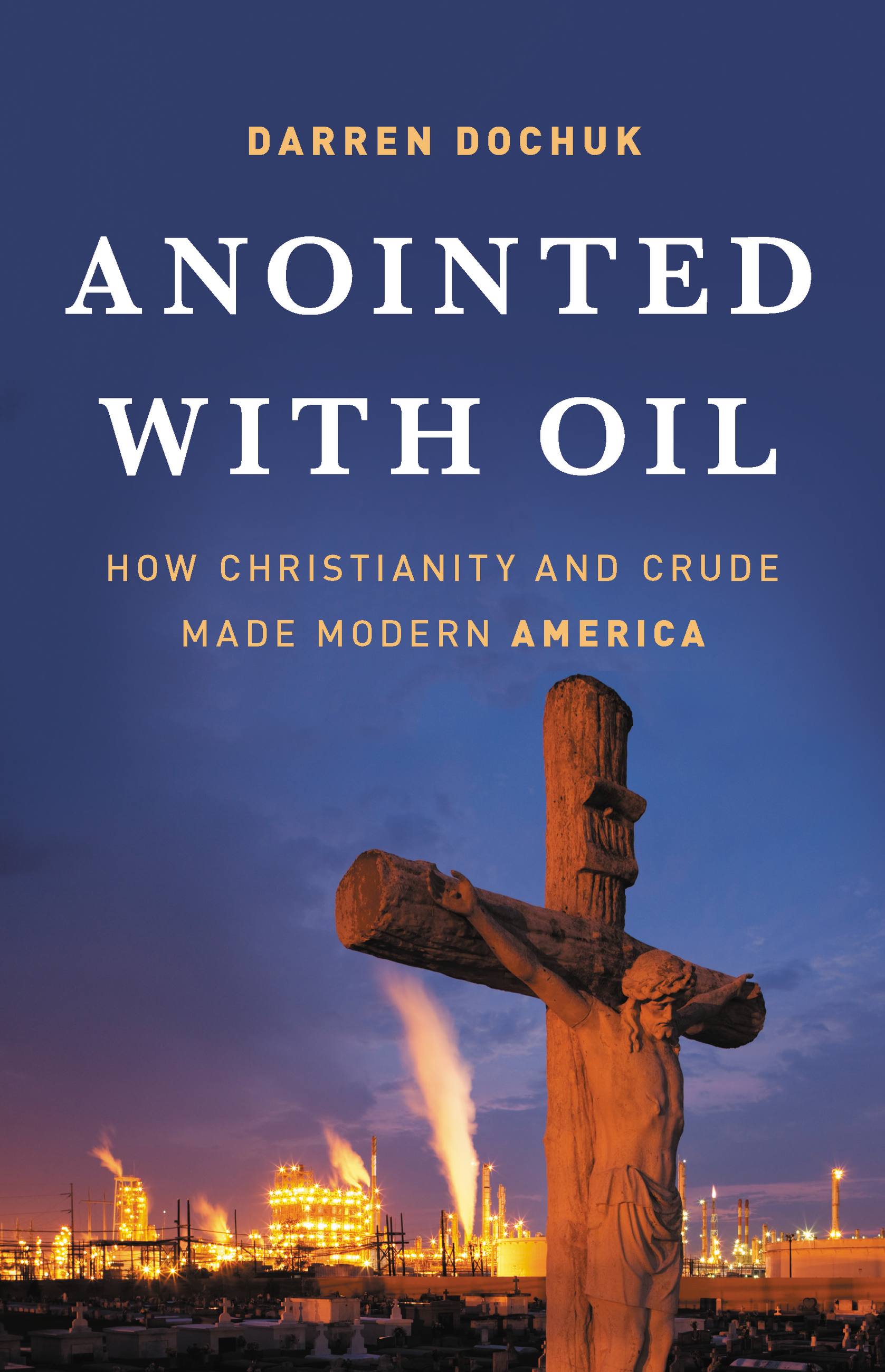You note that there were sharply divergent religious attitudes in the oil industry, especially the clash between the “civil religion of crude” and “wildcat Christianity.” What divided those camps?
My use of the categories “wildcat Christianity” and “civil religion of crude” point to a central tension: the generations-long competition between two different sectors of U.S. petroleum and, correspondingly, of U.S. Protestantism. This clash reflected two dueling “spirits of capitalism.”
I identify the civil religion of crude with the major (fully integrated, multinational) oil companies of the east—Standard Oil and its offshoots—and with their controlling clan, the Rockefellers. Illustrative of Max Weber’s vision of a Protestant bureaucratic outlook, the Rockefellers sought to impose order on their chaotic corporate realm (and early oil was chaotic) and to reform society and transform the globe with a postmillennialist, ecumenical, social gospel—a gospel that saw oil money as a means to uplift humanity and essentially baptize people in their liberal, internationalist worldview.
I identify the ethic of wildcat Christianity with the independent oilmen who on account of the Rockefellers’ monopoly in Pennsylvania were forced to relocate west. Enraged by the Rockefellers’ control of their industry and that family’s liberal Protestantism, the wildcatters determined to protect their individual rights to drill exploratory wells (a process called “wildcatting”) and enjoy oil’s profits on their own terms. They shored up their core principles, which were intensely evangelical: They defended the autonomy of believers and the church, as well as orthodox theological convictions espoused in the 1915 publication The Fundamentals (a project independent oilman Lyman Stewart funded to offset Rockefeller-sponsored liberalism). They emphasized the primacy of soul-winning evangelism over social restructuring, in anticipation of Christ’s impending return. Because of the surprising shift of oil production to California and Texas at the turn of the 20th century, these independents—many of whom, like Stewart, were extremely devout—were able to build their own empires, and fight the Rockefellers for control of their industry, and ultimately of the American church.
Many of the leading figures in your book were evangelical Christians. To what extent has there been a special affinity for the oil business among evangelicals?
Evangelicals certainly operate at the heart of my story. Many oil executives were outspoken evangelicals who saw their business and service to the church as one vocation. Meanwhile, countless geologists, drillers, and roughnecks worked the oil fields with strong adherence to the Bible and a conviction that Christian principles informed their labors. So yes, I’d claim that there has always been a special affinity for the oil business among evangelicals.
